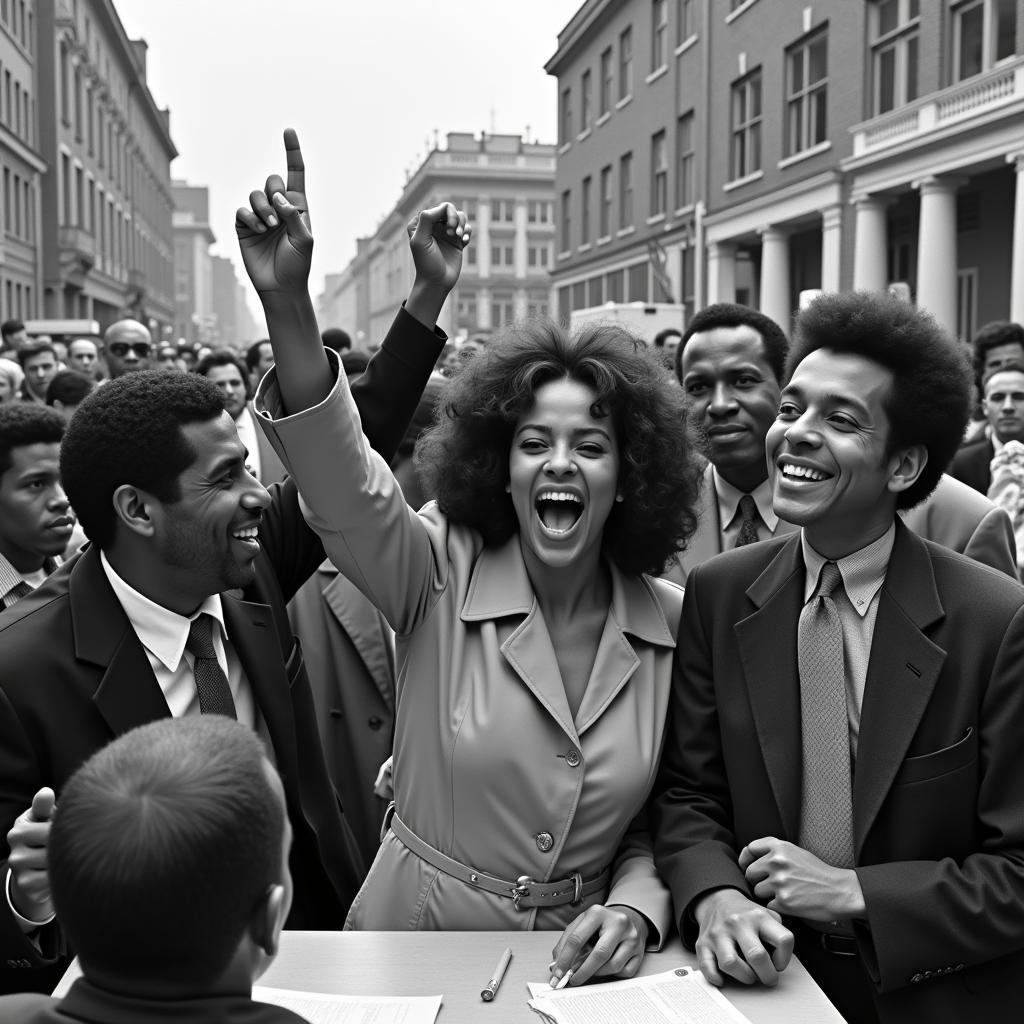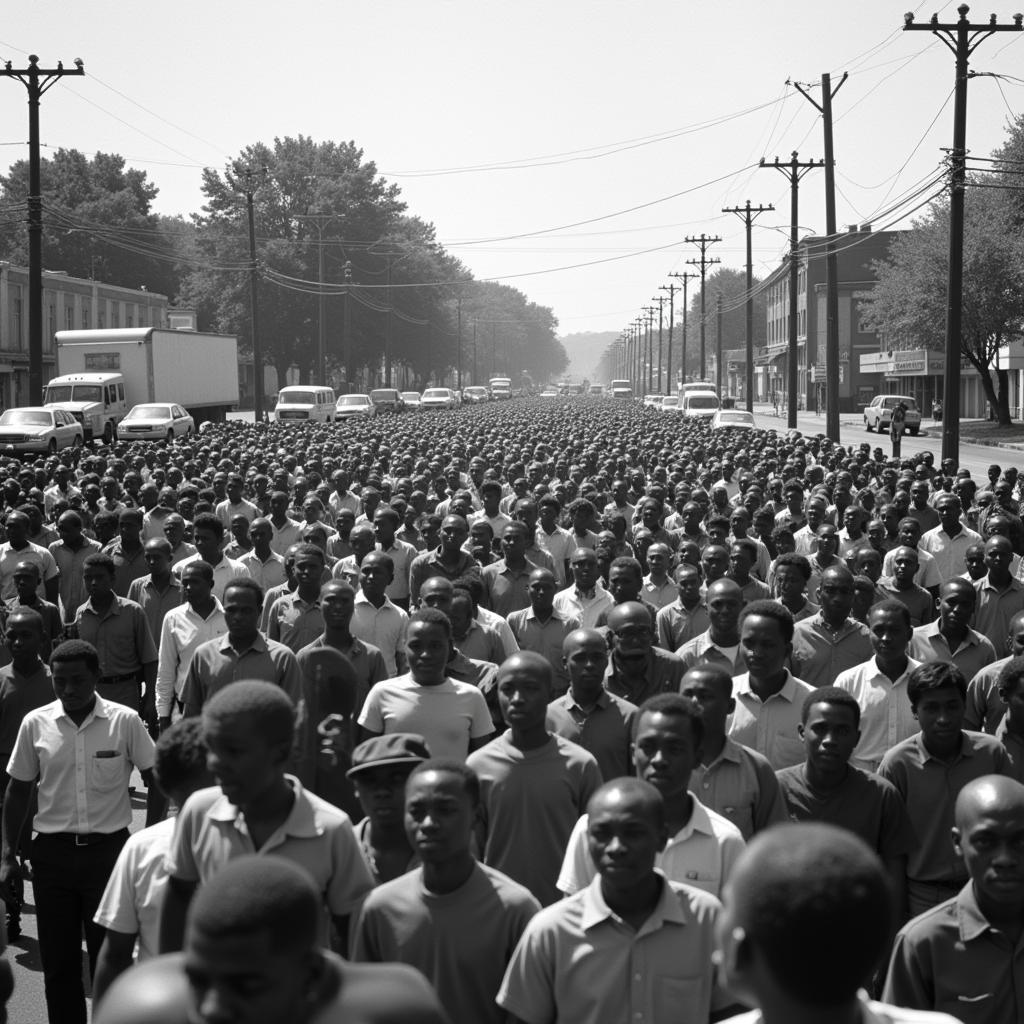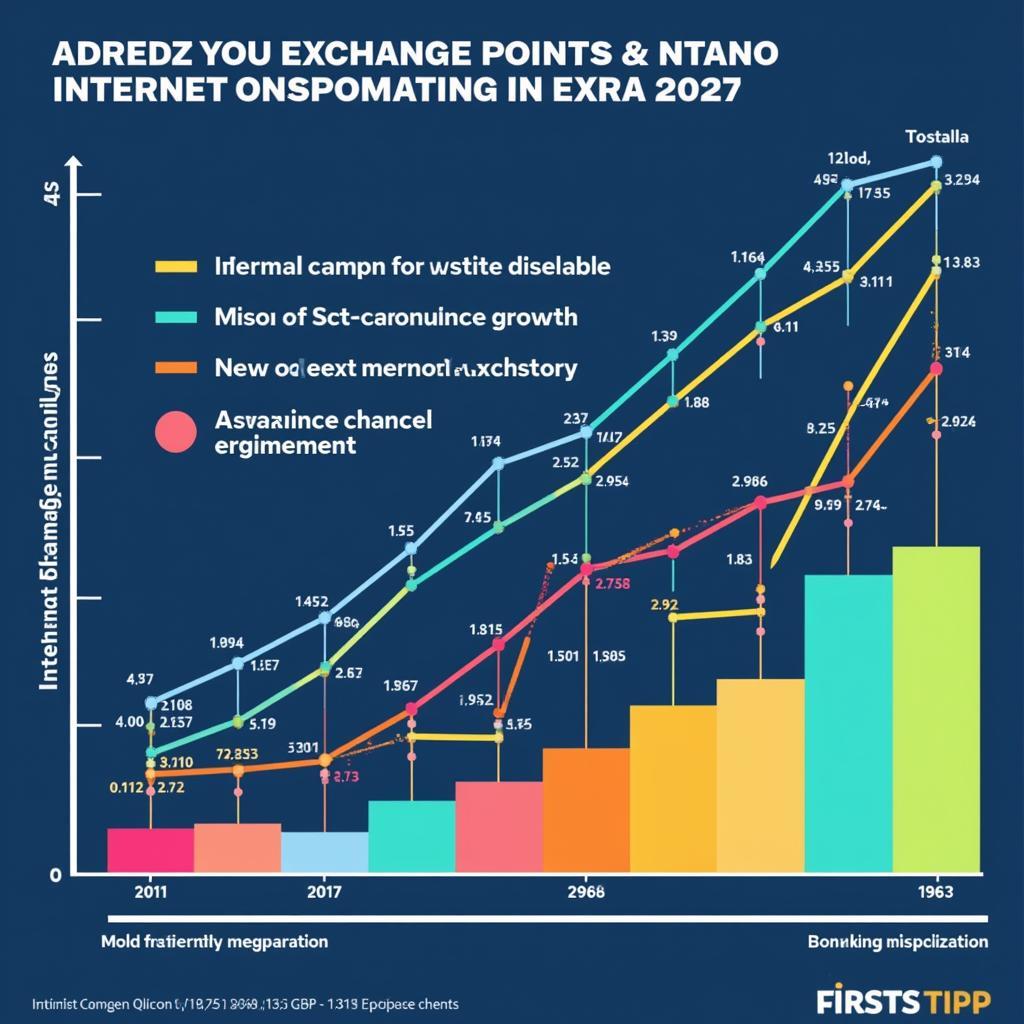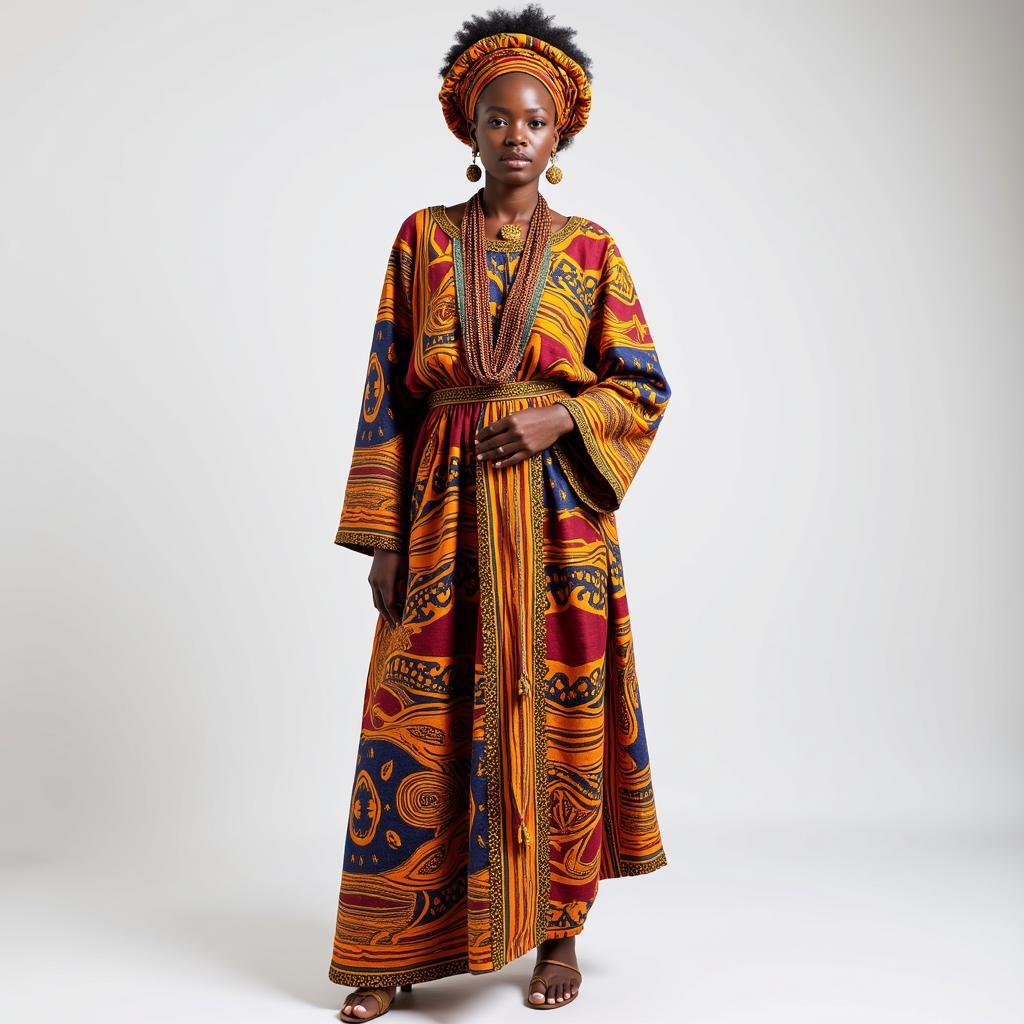When Did African Americans Get the Right to Vote?
The long and arduous struggle for African Americans to gain the right to vote in the United States is a testament to their resilience and unwavering pursuit of equality. While the 15th Amendment, ratified in 1870, ostensibly granted African American men this fundamental right, it took almost a century of relentless activism, legal battles, and social upheaval before they could truly exercise their suffrage freely and fairly.
 African Americans Celebrating the Voting Rights Act
African Americans Celebrating the Voting Rights Act
The Reconstruction Era and Its Aftermath
The period following the Civil War, known as the Reconstruction Era, saw a surge in political participation by African Americans, particularly in the South. However, this newfound freedom was met with fierce resistance. Southern states enacted a series of discriminatory laws and practices, such as poll taxes, literacy tests, and grandfather clauses, specifically designed to disenfranchise Black voters. These measures effectively barred generations of African Americans from exercising their constitutional right.
The Civil Rights Movement and the Fight for Voting Rights
The Civil Rights Movement of the mid-20th century brought the issue of voting rights to the forefront of the national agenda. Activists organized voter registration drives, staged protests, and endured brutal attacks from white supremacists and law enforcement officials. Iconic moments like the 1965 Selma to Montgomery marches, where peaceful demonstrators were met with violence, galvanized public support and pressured the federal government to act.
 March from Selma to Montgomery for Voting Rights
March from Selma to Montgomery for Voting Rights
The culmination of these efforts was the passage of the Voting Rights Act of 1965. This landmark legislation outlawed discriminatory voting practices and authorized federal oversight of voter registration and elections in states with a history of disenfranchisement. The act had an immediate and significant impact, leading to a dramatic increase in African American voter registration and participation in the political process.
Ongoing Challenges and the Future of Voting Rights
While the Voting Rights Act of 1965 was a monumental achievement, the fight for equal voting rights is far from over. In recent years, there has been a resurgence of efforts to restrict voting access, particularly among minority communities. These efforts include voter ID laws, cutbacks in early voting periods, and purging of voter rolls.
 African Americans Exercising Their Right to Vote Today
African Americans Exercising Their Right to Vote Today
The struggle to protect and expand voting rights for all Americans continues to this day. It is a reminder that the right to vote is fundamental to a healthy democracy and that vigilance is necessary to ensure that all citizens have an equal voice in shaping their government.
Conclusion
The journey of African Americans to secure the right to vote has been long and challenging. Despite facing systemic barriers and discriminatory practices, their unwavering determination led to significant legal victories and a transformation of the American political landscape. However, the fight for equal voting rights is an ongoing process, requiring constant vigilance and advocacy to ensure that every citizen’s voice is heard and that the promise of democracy is fully realized.



